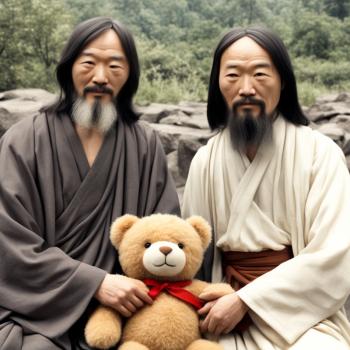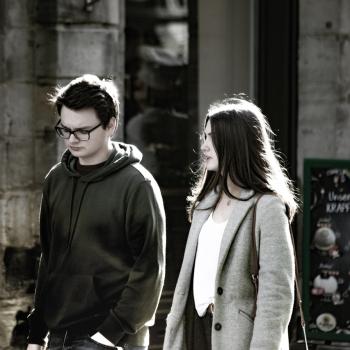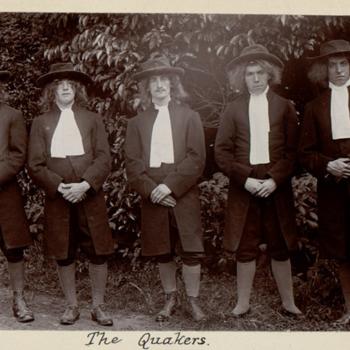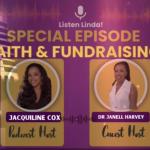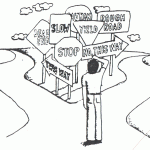Don’t miss Disney’s Inside Out 2. The new film highlights both mental health and spiritual wellness. And there’s an app for that!
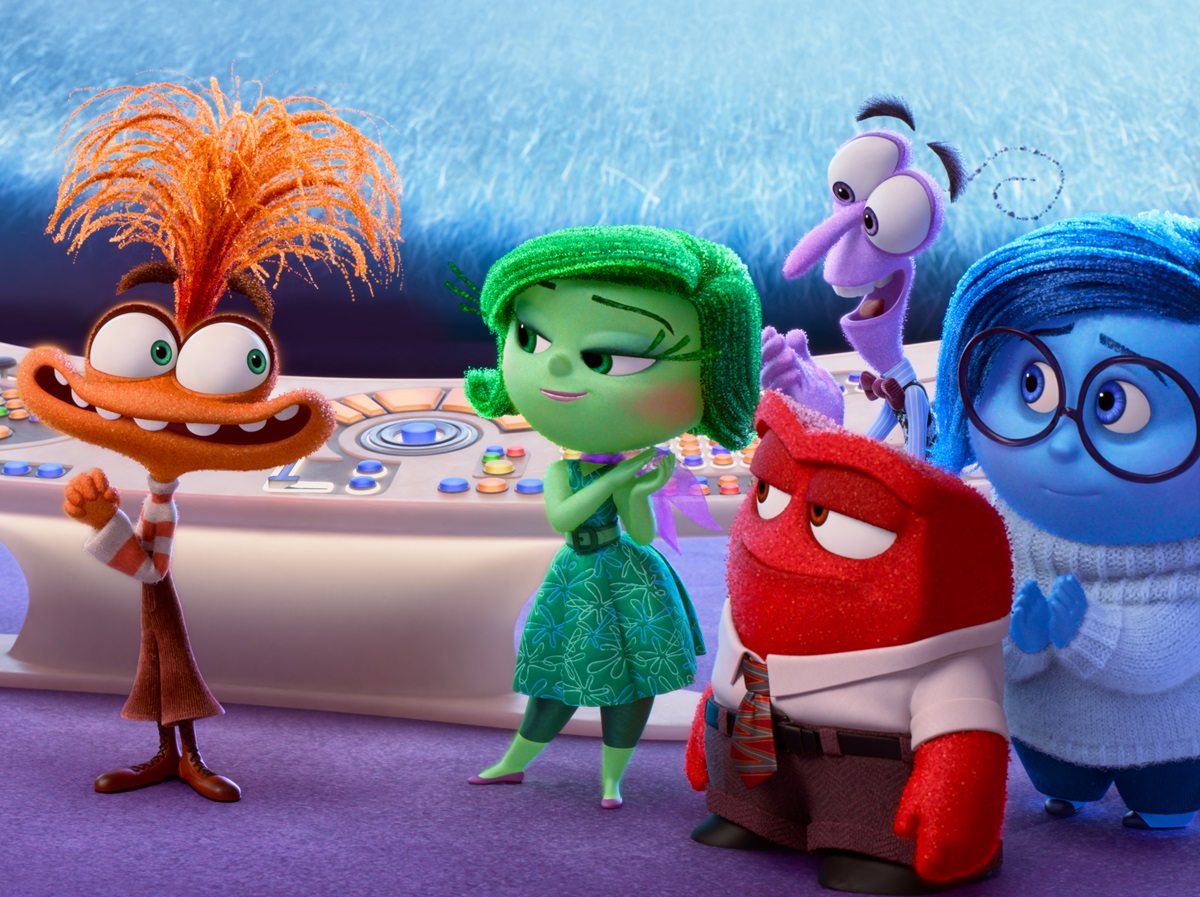
Adults often give Disney films a pass, expecting little more than heroes, magic, and princesses who save the day. But Disney’s June 2024 release isn’t just for kids. Sure, children will love the show—the one sitting next to us laughed all the way to the end. But if you’re looking for a smart and spiritual look at the inner self, you’ll find it in Inside Out 2.
Spoiler alert: this article reveals plot points. But, if you haven’t yet seen the film, this article will also give you some perspective as you watch it.
New Phase of Life—New Emotions
Nine years after the release of the original Inside Out, the second film follows lovable Riley into puberty. The original movie introduces the audience to Riley’s emotions, portrayed as characters inside her head. If you fell in love with personified feelings named Joy, Anger, Fear, Disgust, and Sadness, you’ll meet new players who arrive at the onset of adolescence.
Disney depicts this season of mental and emotional change as a wrecking ball crashing through a window. A demolition team inside Riley’s mind sets up a sign that says, “Pardon our dust. Puberty is messy.” New characters such as Anxiety, Envy, Embarrassment, and Ennui begin to take over, threatening Riley’s Belief System.
Belief System and Sense of Self
According to the movie (and good psychology), pleasurable and painful experiences create good and bad memories. These memories and recurring thoughts create your Belief System. Growing like a flower in that Belief System you’ll find your Sense of Self.
Riley’s young Sense of Self says, “Mom and Dad are proud of me,” “I’m kind,” “I’m a really good friend,” and “I’m a winner.” However, once Anxiety steps in, Joy gets pushed out and everything starts to change. Envy, Ennui, and Embarrassment join in the chaos, eventually resulting in Joy and other emotions getting bottled up and suppressed. Then, Anxiety sends Riley’s Sense of Self to the back of her mind. In place of the Riley, we know and love, the new emotions want to build a new Sense of Self, “a brand new her.” Riley’s original Sense of Self threatens to fade like a guttering candle. It’s up to Joy and the gang to save the day.
Puberty as an Allegory
Aside from a tale of sin and judgment, many progressive Christian scholars consider the story of Adam and Eve an allegory of puberty. Eden represents childhood innocence, with an integrated Sense of Self and union with The Divine. In this view, the primordial couple falls, not because they bite an apple, but because they allow emotions like Envy, Anxiety (fear), Ennui (sloth), and Embarrassment (Pride) to take control. (Note the connection to the seven deadly sins.)
As humanity develops to an adolescent stage, a new Sense of Self develops, independent of its relationship with The Divine. In this interpretation, Adam and Eve’s “sin” has nothing to do with actual forbidden fruit. Instead, “the fall” comes about due to the disintegration of the Self, emotional dysregulation, and a delusion of being disconnected from God and creation. What humanity needs is not absolution, but a renewed or resurrected Sense of Self.
So, Jesus says, “Let the children come to me, and do not stop them, for it is to such as these that the kingdom of God belongs. Truly I tell you, whoever does not receive the kingdom of God as a little child will never enter it (Luke 18:16-17).” In other words, we return to Eden, or the realm of Heaven, when we reintegrate our Sense of Self. And Jesus’ way of love helps you do that.
Exorcising Anxiety
In Inside Out 2, the recurring phrase “I’m not good enough” replaces Riley’s original “I’m a good person.” Joy temporarily despairs, admitting she doesn’t know how to stop Anxiety. “Maybe we can’t. Maybe this is what happens when you grow up. You feel less joy.”
When Anxiety pushes Joy out and the negative emotions take over, Riley begins to do things that religious people might call “sinful.” But it’s noteworthy that these misdeeds stem from her Anxiety, and are not its root cause. Sin isn’t so much the “bad stuff you do.” It’s the negative thoughts and emotions you let control you.
As Riley’s Sense of Self continues to die, she seems controlled by Anxiety. Her heart and thoughts race. All her emotions combine to form a hurricane that Anxiety has produced. Like Jesus rebuking the storm (Mark 4:35-41), Joy steps into the cyclone and says, “You don’t get to choose who Riley is.” Like Jesus casting out demons (Matthew 8; Mark 5), Joy says, “Anxiety, you need to let her go.”
Restored Sense of Self
Immediately, the storm dies down inside Riley’s mind. Joy restores Riley’s Sense of Self that says, “I’m a good person.” As long as Riley’s thoughts and emotions compete, chaos reigns. But when they combine to embrace Anxiety, peace prevails and Riley recovers.
Yes, this is a Disney movie. So, you know there’s going to be a happy ending. But it would be overly optimistic to think that troubling thoughts and emotions can be commanded away, never to return. Jesus even warned that our exorcised demons can come back if we don’t maintain our spiritual house (Matthew 12:43-45). If challenging thoughts and emotions are a problem for you, where can you turn for help?
Integrating Body, Mind, and Spirit
Healthy spiritual practices that integrate body, mind, and spirit can help you sustain mental and emotional wellness. When I was a pastor, I always encouraged prayer, worship, singing, reading the Bible, and service to others as spiritual practices that give believers a sense of groundedness. (Click here to read my article, “Can Religion And Spirituality Benefit Mental Health?”)
According to Gallup’s Faith and Wellness study, “A growing body of medical and psychological research demonstrates that people with a stronger spiritual or faith commitment often have better health and wellbeing outcomes than those without.” This study statistically shows that religious people tend to experience more enjoyment, feel more well-rested, and feel more respected than those without faith. They also tend to make friends more easily and have a stronger support network. They trend toward higher optimism. On the whole, religion is healthy (as long as it isn’t toxic).
Yet, the Gallup study says, “Over the past 15 years, religiosity has declined in high-income countries but remained relatively stable in less wealthy countries. In the U.S., adults today are less religious than Americans in the past by almost any measure.” As a result, people need ways to integrate body, mind, and spirit outside of religious institutions.
The Skylight App
As a behavioral health specialist, I invite my clients who are interested to engage in meditation. One of the best tools I have found for this is the Skylight app. My clients have enjoyed the app’s interreligious prayers, affirmations, meditations, and breathwork. Exercises include Tai Chi, yoga, stretching, and more. Caring instructors focus on anxiety, sleep, stress, loneliness, inner peace, self-esteem, confidence, and other healing needs. I use the app and have shared it with many who have found it useful.
If, like Riley, you want a healthy Belief System, the Skylight app can help. In the movie, Anxiety uses imagination to concoct a series of catastrophic situations in a potential future. Joy calms Anxiety by saying, “None of that is happening right now. So why don’t we take a seat in our special chair? We can’t control whether Riley makes the team, but what can we control?” Instructors in the Skylight app do the same thing. They gently remind you that you can control your reaction to situations. They invite you to breathe deeply and be at peace.
You can access Skylight on your computer. Or, you can get the app, available for iPhone and Android. This way you can take it with you and make wherever you are, your place of peace.
From the Inside Out
The movie concludes with Joy integrating her thoughts and gaining a degree of emotional regulation. Joy says, “Every bit of Riley makes her who she is. And we love our girl—every messy, beautiful part of her.” Since Joy and all the emotions are a part of Riley, it’s actually Riley saying, “I love myself—every messy, beautiful part of me.” In making Inside Out 2, Disney wishes the same self-love for you. The folks at Skylight agree, and they want to help you out. So, watch the movie, say a prayer, and try the app. Get to know yourself from the inside out.









